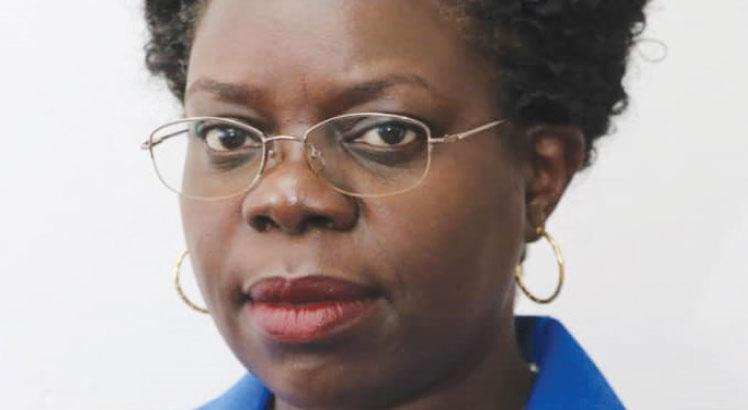Escom, Admarc in K9.3bn mess
Findings in the 2016/17 Auditor General’s report show that Electricity Supply Corporation of Malawi (Escom) and Agricultural Development and Marketing Corporation (Admarc) collectively abused K9.3 billion through procurement transactions they failed to account for.
The report, titled An Audit Report on Malawi Government Accounts for the Fiscal Year 2016/17 which The Nation has seen and was prepared by the former Auditor General Stevenson Kamphasa, includes audit reports for nine statutory corporations.

It indicates that the two parastatals failed to explain to the auditors how the billions of kwacha were used.
In the case of Escom, the report shows that during the financial year ended June 30 2017—whose audit was completed in November 2017—the power utility ordered goods valued at K8.3 billion from about 23 suppliers without following internal procurement procedures and without the knowledge of key management.
Reads the report in part: “Out of the K8.3 billion ordered items, the corporation only needed K3.2 billion of the items; rendering the remaining K5.1 billion useless.”
Further, the report says despite Escom embarking on a project to migrate customers from post-paid to prepaid billing through introduction of meters mounted on electricity poles to phase out the old three-phase system, the corporation continued to acquire the old three-phase meters.
“A total of 24 550 meters valued at K1.8 billion were received in March and April 2016, but only 330 items valued at K23 million were issued from stores in the last 12 months to June 2017,” reads the report.
For Admarc, the report shows that the State produce trader failed to explain to the auditors the whereabouts of K4.2 billion purportedly used to purchase maize and other items in the year under review.
The auditors also said they did not find any proof of delivery for the said maize and the other items.
Reads the report: “The auditors were unable to obtain sufficient and appropriate audit evidence to ascertain that quantities relating to purchases valued at K3 billion were fully received. Included in the cost of sales is an amount of K1.2 billion that could not be explained by management.”
The revelations come against a background of the two parastatals seeking bailout from Treasury. The Ministry of Finance, Economic Planning and Development rebuffed Escom’s K58 billion bailout request while Admarc was granted a bailout of K45 billion after it failed to repay loans obtained to purchase and sell maize in 2015/16.
When contacted on Wednesday on how the misprocurement at the corporation occurred, Escom public relations manager Innocent Chitosi asked for a written questionnaire which he said will take time to respond to because he needed to consult.
But Escom has previously acknowledged that bad procurement decisions occurred and resulted in the parastatal’s request for a bailout to even the bottom line.
Escom board chairperson Thom Mpinganjira told a news conference last month that the corporation made some procurement mistakes, including purchase of supplies they did not need.
He said: “Procurement procedures were not followed. There were serious misprocurement processes.”
Reacting to the audit report, Public Accounts Committee of Parliament chairperson Alekeni Menyani, whose committee provides oversight, said they are yet to scrutinise the report.
His committee has, however, previously complained about mismanagement of finances and public resources by government ministries, departments and agencies (MDAs).
Public money watchers are aghast.
Economist Dalitso Kubalasa said in an interview it was unfortunate that every year irregular procurement processes are detected, making it difficult to prevent fraud.
He said ideally, proper procurement processes seek to prevent fraudulent appointments, favouritism and to ensure, among other things, the appointment of bona fide suppliers who will deliver the quality services and also duly pay their portion of the taxes.
The report also exposed K23.1 billion over-expenditure by seven MDAs, including Roads Fund Administration (RFA), State Residences and the Office of the President and Cabinet (OPC) on their allocations in the 2016/17 financial year.
RFA tops the list with an over-expenditure of K19.2 billion, followed by State Residences at K2.2 billion while the Anti-Corruption Bureau (ACB) is the least after overspending by K9.7 million.
The noted shortcomings, especially relating to payments without supporting vouchers and missing payment vouchers, invoke memories of Cashgate—the plunder of public resources at Capital Hill—exposed in September 2013 through the shooting of then Ministry of Finance budget director Paul Mphwiyo outside the gate of his house.
The highlighted shortfalls cover the three years after President Peter Mutharika and his Democratic Progressive Party (DPP) administration took charge of Capital Hill following their triumph in the May 20 2014 Tripartite Elections.
In February this year, in a presentation titled Public Purse: Use, Misuse, Abuse of Government Resources under the auspices of the Malawi Law Society (MLS), Professor Dan Kuwali, a Brigadier General in the Malawi Defence Force, said the public finance management system is also haunted by lack of guidelines for revenue collection and expenditure, absence of reports on previous expenditure by MDAs when seeking fresh funding and lack of accountability on unforeseen expenditures approved by Cabinet and not Parliament.





